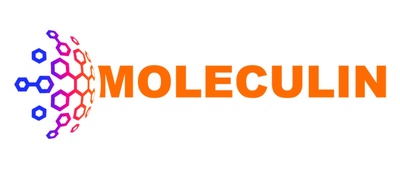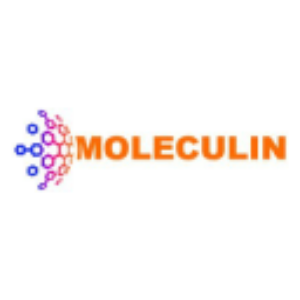Moleculin Announces New Data Demonstrating Synergistic Antitumor Activity of Annamycin Combination with Ara-C in AML
Moleculin Biotech, Inc. (Nasdaq: MBRX) announced new animal study results showing significant improvements in survival rates for acute myeloid leukemia (AML) when Liposomal Annamycin (L-ANN) is combined with Ara-C (cytarabine). The combination therapy led to median survival times ranging from 56 to 76 days, representing a 585% increase compared to single-agent treatments. Moleculin plans to initiate clinical trials for the combination therapy, termed 'AnnAraC,' following these promising results. The findings were presented at the 62nd Annual Meeting of the American Society for Hematology.
- Median survival in AML mice increased by 585% with combination therapy.
- Potential initiation of clinical trials for the combined treatment of Annamycin and Ara-C.
- Annamycin has shown human activity with no cardiotoxicity, addressing a significant concern with current treatments.
- None.
HOUSTON, Nov. 19, 2020 /PRNewswire/ -- Moleculin Biotech, Inc., (Nasdaq: MBRX) (Moleculin or the Company), a clinical stage pharmaceutical company with a broad portfolio of drug candidates targeting highly resistant tumors and viruses, today announced that new animal data has shown highly improved activity against acute myeloid leukemia ("AML") when used in combination with the commonly used antileukemic drug Ara-C (also referred to as "cytarabine") versus single agent. The data is being presented at the 62nd Annual Meeting & Exposition of the American Society for Hematology ("ASH") under the title: "High Efficacy of Liposomal Annamycin (L-ANN) in Combination with Cytarabine in Syngeneic p53-null AML Mouse Model."
This study was conducted in a highly aggressive AML mouse model where median survival is approximately 13 days. For animals treated with the combination of Annamycin and Ara-C, median survival ranged from 56 to 76 days, thus expanding median survival by
"This is a very important discovery that will most likely change the course of development for L-Annamycin," commented Walter Klemp, Chairman and CEO of Moleculin. "While our current AML trials are encouraging and we are seeing significant activity with Annamycin as a single agent in relapsed AML patients, this data makes a compelling case that we should move as quickly as possible to begin a clinical trial in AML for the combination of Annamycin with Ara-C, something we are calling 'AnnAraC.' We believe the future for Annamycin just became even more promising."
Mr. Klemp concluded: "Annamycin has already shown human activity as a single agent in its two Phase 1 AML clinical trials, including one complete response, and showing no signs of cardiotoxicity, unlike other anthracyclines. And, it now appears, based on the observed synergy in vitro and confirmatory in vivo data, that the combination of Annamycin and Ara-C could be more effective in a clinical setting than Annamycin as a single agent. This would be consistent with current practice to use Ara-C in combination with an anthracycline like Annamycin. The current first-line therapy for AML patients is the combination of an anthracycline and Ara-C in a regimen referred to as "7+3" where Ara-C is administered daily for 7 days in parallel with 3 daily doses of an anthracycline. Simply substituting the currently used anthracycline in a similar 7+3 regimen with Annamycin would represent a familiar and well-practiced treatment modality. Beyond that, it would have the added advantages that Annamycin is active against tumor cells resistant to doxorubicin and, importantly, removes the concern for cardiotoxicity, a significant toxic side effect of currently used anthracyclines."
The study abstract, as accepted by ASH, can be viewed at: https://ash.confex.com/ash/2020/webprogram/Paper143344.html
About Moleculin Biotech, Inc.
Moleculin Biotech, Inc. is a clinical stage pharmaceutical company focused on the development of a broad portfolio of oncology drug candidates for the treatment of highly resistant tumors and viruses. The Company's clinical stage drugs are: Annamycin, a Next Generation Anthracycline, designed to avoid multidrug resistance mechanisms with little to no cardiotoxicity being studied for the treatment of relapsed or refractory acute myeloid leukemia, more commonly referred to as AML, WP1066, an Immune/Transcription Modulator capable of inhibiting p-STAT3 and other oncogenic transcription factors while also stimulating a natural immune response, targeting brain tumors, pancreatic cancer and hematologic malignancies, and WP1220, an analog to WP1066, for the topical treatment of cutaneous T-cell lymphoma. Moleculin is also engaged in preclinical development of additional drug candidates, including other Immune/Transcription Modulators, as well as WP1122 and related compounds capable of Metabolism/Glycosylation Inhibition.
For more information about the Company, please visit http://www.moleculin.com.
Forward-Looking Statements
Some of the statements in this release are forward-looking statements within the meaning of Section 27A of the Securities Act of 1933, Section 21E of the Securities Exchange Act of 1934 and the Private Securities Litigation Reform Act of 1995, which involve risks and uncertainties. Forward-looking statements in this press release include, without limitation, the ability of Annamycin to show safety and efficacy in AML patients, alone or in combination with Ara-C and the ability of the Company to receive regulatory authorization to begin a clinical trial for the combination of Annamycin and Ara-C. Although Moleculin believes that the expectations reflected in such forward-looking statements are reasonable as of the date made, expectations may prove to have been materially different from the results expressed or implied by such forward-looking statements. Moleculin Biotech has attempted to identify forward-looking statements by terminology including ''believes,'' ''estimates,'' ''anticipates,'' ''expects,'' ''plans,'' ''projects,'' ''intends,'' ''potential,'' ''may,'' ''could,'' ''might,'' ''will,'' ''should,'' ''approximately'' or other words that convey uncertainty of future events or outcomes to identify these forward-looking statements. These statements are only predictions and involve known and unknown risks, uncertainties, and other factors, including those discussed under Item 1A. "Risk Factors" in our most recently filed Form 10-K filed with the Securities and Exchange Commission ("SEC") and updated from time to time in our Form 10-Q filings and in our other public filings with the SEC. Any forward-looking statements contained in this release speak only as of its date. We undertake no obligation to update any forward-looking statements contained in this release to reflect events or circumstances occurring after its date or to reflect the occurrence of unanticipated events.
Contacts
James Salierno / Carol Ruth
The Ruth Group
973-255-8361 / 917-859-0214
jsalierno@theruthgroup.com
cruth@theruthgroup.com
![]() View original content to download multimedia:http://www.prnewswire.com/news-releases/moleculin-announces-new-data-demonstrating-synergistic-antitumor-activity-of-annamycin-combination-with-ara-c-in-aml-301176835.html
View original content to download multimedia:http://www.prnewswire.com/news-releases/moleculin-announces-new-data-demonstrating-synergistic-antitumor-activity-of-annamycin-combination-with-ara-c-in-aml-301176835.html
SOURCE Moleculin Biotech, Inc.
FAQ
What are the new findings from Moleculin Biotech related to AML?
When were the new data findings announced by Moleculin Biotech?
What is the expected next step for Moleculin Biotech following the new AML study results?








